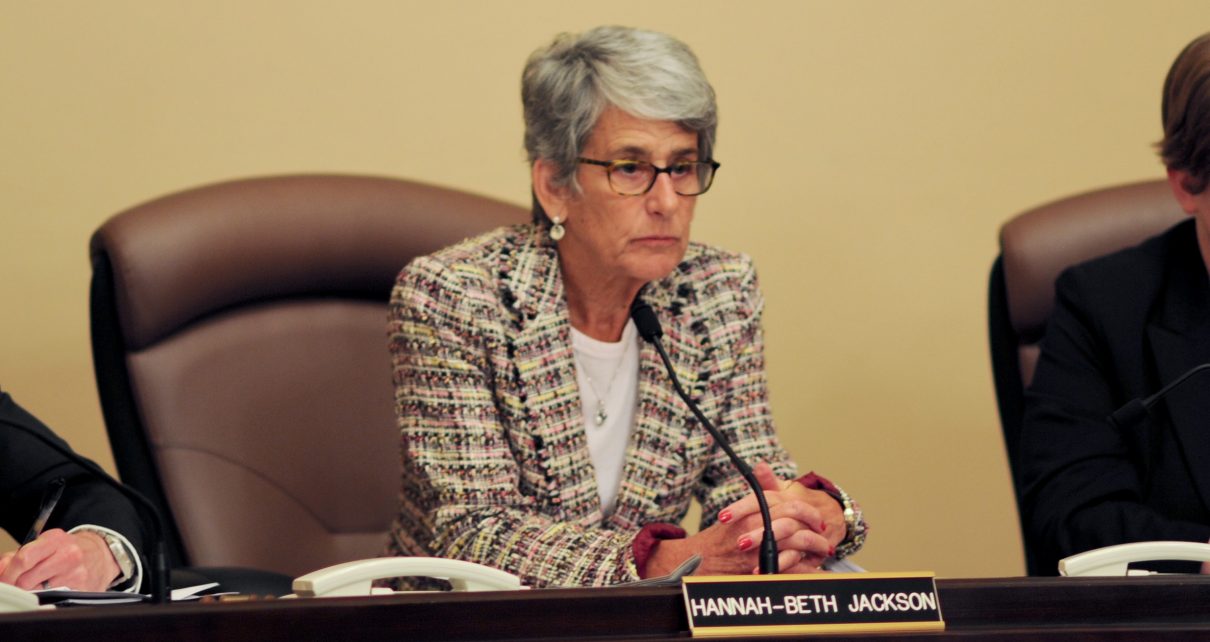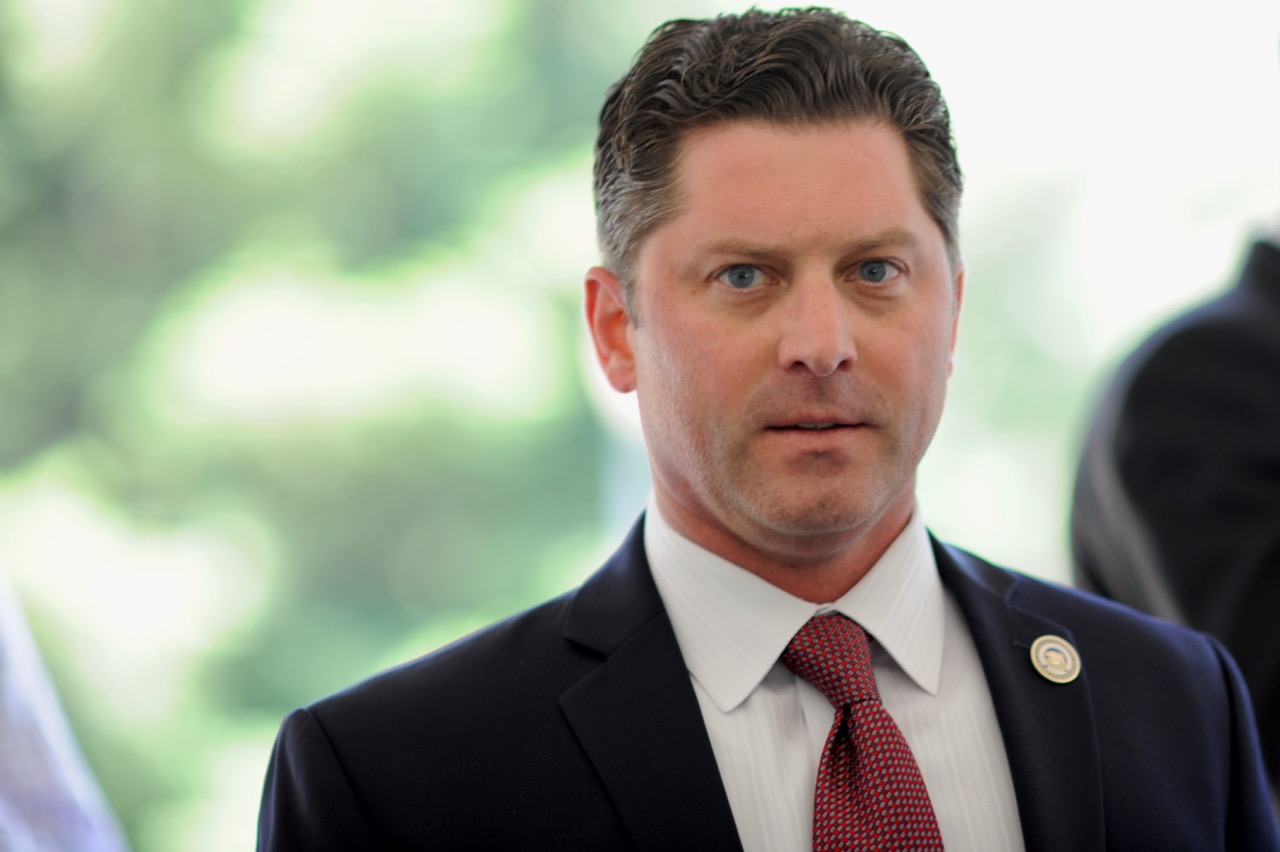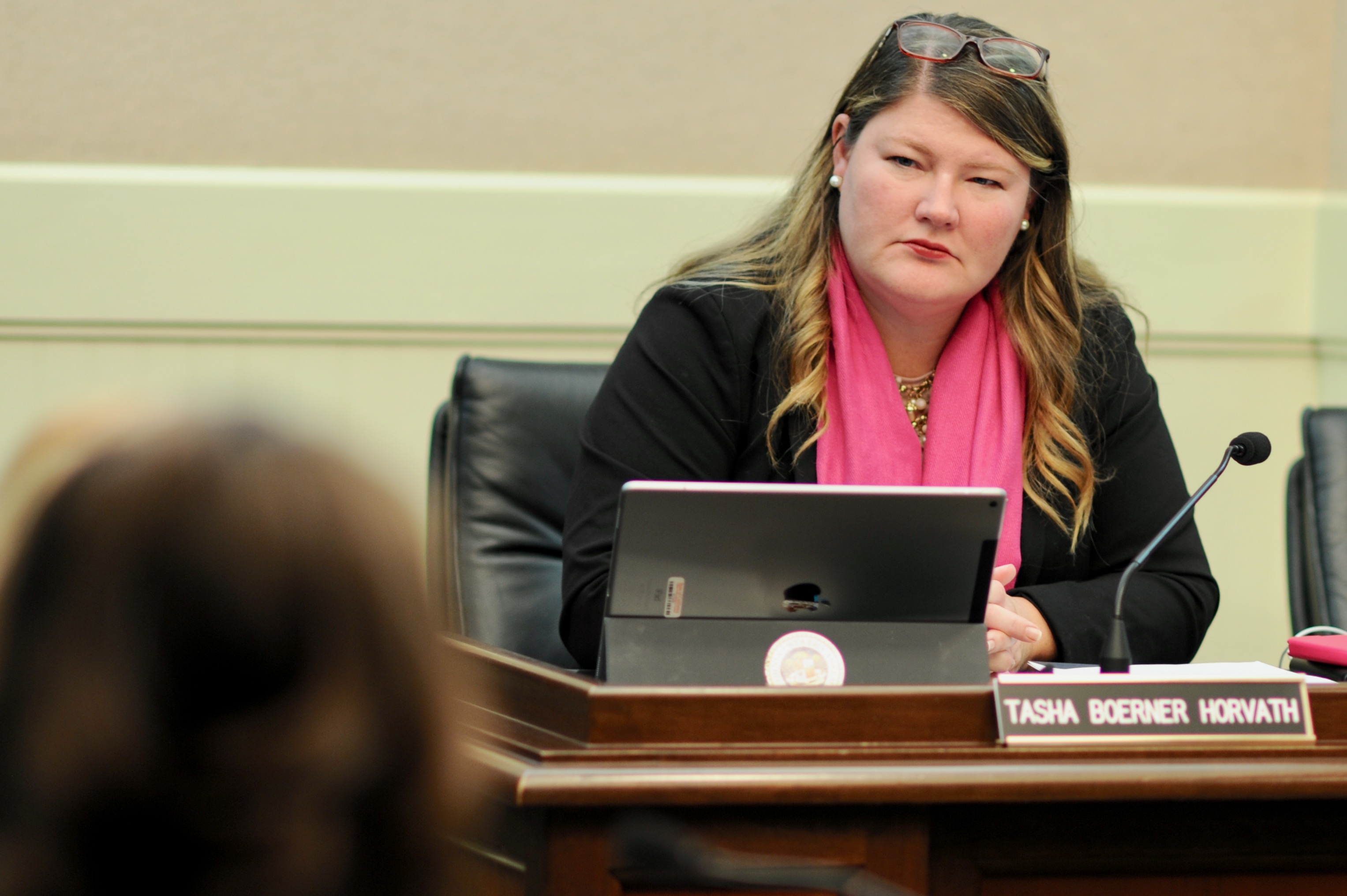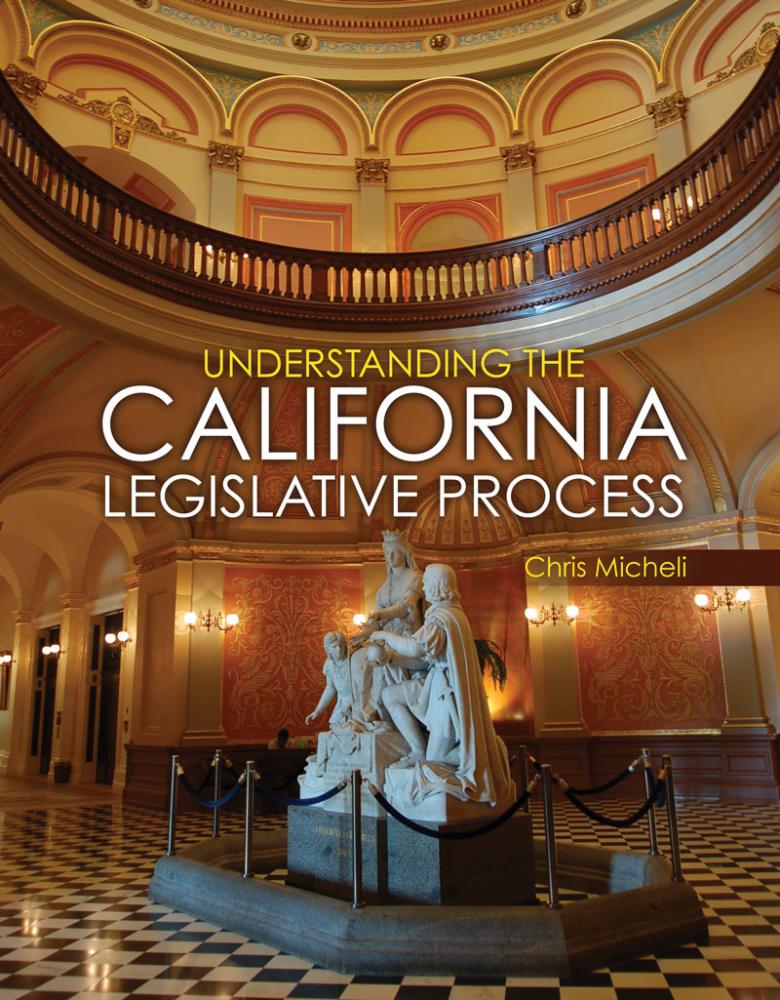
Campus Sexual Assault Bill; One-Sided Prosecutorial-Like Proceedings Traumatizes Students, Violates Due Process
Senate Bill 493 does not include the presumption of innocence
By Katy Grimes, July 9, 2019 4:22 pm
The Latin inscription emblazoned over the dais of the California State Senate Chamber says, “Senatoris est civitatis libertatem tueri” — It is the duty of the senators to protect the liberty of the citizens.
Campus sexual assault has been a focus of debate in recent years. California even passed its ground-breaking “Yes Means Yes” affirmative consent law in 2015, effectively calling sexual relations between students on campus “rape,” should one of the partners feel violated. But these policy changes have triggered a round of lawsuits by accused students, saying their due process rights have been violated – the legal requirements that the state must respect all legal rights that are owed to a person.
Most recently, Sen. Hannah Beth Jackson (D-Santa Barbara) authored SB493, called the Education: Sex Equity bill. SB 493 contains a number of controversial provisions, such as training campus Title IX staff in “trauma-informed” methods; banning the use of direct cross-examination in university disciplinary panels; and allowing the use of “single-investigator” investigations in which the same person serves as judge, jury, and executioner. There have been some amendments to the bill but as it stands, it is still concerning. In her opening statement at an April hearing, Sen. Jackson acknowledged the passage of California’s SB 947 “Yes means Yes” legislation, but said, “we cannot be satisfied with the implementation of that measure.”
Title IX was enacted to prohibit discrimination in all federally funded education programs, and allowed. However, there is widespread misunderstanding of Title IX as a sports-equity law, rather than an anti-discrimination, civil rights law.
Notably, university disciplinary panels are not made up of trained judges, police officers, legal mediators or attorneys, and instead are made up of university employees and even undergraduate students. They have an interest in protecting the university, and not the rights of the accused, or the victim.
No Presumption of Innocence
The inclusion of “trauma-informed” methods and care renders the process partial, rather than impartial the way a court proceeding would be. Trauma-Informed Care is an approach typically in the health and human service field that assumes an individual is more likely than not to have experienced a (sexual) trauma.
Most people only recently heard about “trauma-informed” methods during the hearings for U.S. Supreme Court Justice Brett Kavanaugh, with Christine Blasey Ford’s decades old accusations of sexual assault when they were high school students in suburban Maryland. “Trauma-informed” gave her accusations credibility in the eyes of many. As one attorney told me, “trauma-informed” cannot include the presumption of innocence when those conducting the proceeding automatically believe the victim is telling the truth. As chief counsel of the Judicial Crisis Network Carrie Severino said, during the Kavanaugh confirmation hearings, both Kavanaugh and the “very notion of due process” were under attack – ironic since attorneys say the campus rape proceedings violate due process also.
Sen. Jackson’s bill does not include the presumption of innocence, nor does it define “trauma-informed.” And there are no rules of evidence. So who bears the burden of proof? The accused is forced to bear the burden of proof, rather than considered innocent until proven guilty.
The perception of Jackson’s bill is that attorneys are asking the questions in these campus rape proceedings. However, the “accused” and “victim” students have no right to counsel, because this is not handled in a court of law. The “cross-examination” promised in the bill is a back and forth of written questions and answers, which at any time can be shelved should the adjudicator choose.
I asked an attorney about the motive behind Sen. Jackson’s bill, and how this is at all legal since due process rights are violated in this process. The attorney said because there is no crime, these cases would not stand up in a court of law. Real cases of rape and assault involve the police who collect evidence, interview witnesses, the victim and accused, and testify before a real judge. Many attorneys who handle the aftermath of these types of campus cases say these are mostly cases of bad judgment, parties, alcohol and drugs, and regret. An attorney I spoke with said he has handled more than 150 of these cases, and only two of them involved the police. The others were not considered crimes.
Hook-up Culture
Whether intentional or not, these legislators, many who are self-described feminists, have trivialized rape and sexual assault, while disparaging young men, instead of addressing the degrading hook-up culture young women have come to accept. And instead of counseling female students not to binge drink lest they find themselves in regrettable situations, California legislators have reclassified consensual sex as “rape.”
This isn’t Sen. Jackson’s first rodeo. Last year, in response to the Trump administration’s proposed changes to Title IX to narrow the definition of sexual harassment on college campuses, Democrat Senators Kevin de Leon and Hannah-Beth Jackson introduced Senate Bill 169, which would have codified federal Title IX guidelines into state law, but then-Gov. Jerry Brown vetoed the bill, and ordered a working group to make recommendations for future such legislation. Last November, the working group issued a series of common-sense recommendations that were designed to strike the balance between the needs of complainants and the rights of the accused. Sen. Jackson ignored these recommendations in the original language of SB493.
Families Advocating for Campus Equality
During this time period between the working group recommendations and Jackson’s bill introduction, more than 150 lawsuits were filed by college students expelled based on sexual assault allegations. To date, state and federal courts at both the trial and appeals levels have handed down more than 27 decisions ruling against California colleges and universities for a variety of due process, Title IX, and similar contractual violations.
Cynthia Garrett, an attorney and co-president of Families Advocating for Campus Equality told me in April, “Perhaps most concerning, is that Senator Jackson’s bill ignores multiple California appellate and superior courts that recently have found both public and private California schools’ Title IX procedures ‘deeply flawed,’ that they create ‘an unacceptable risk of bias,’ have completely ‘obliterated due process,’ operate like a ‘kangaroo court,’ have even ‘failed the alleged victim,’ and ‘improperly permitted’ evaluations based on the same ‘trauma-informed approach’ Senator Jackson’s SB-493 seeks to have schools implement.” Jackson disrespectfully denigrated members of Families Advocating for Campus Equality and opponents at the April hearing, referring to them as ‘just some moms of accused students.’”
“In fact, late last year California’s Second District Court of Appeal criticized officials at UC Santa Barbara, located in Senator Jackson’s own district, finding it: “ironic that an institution of higher learning, where American history and government are taught, should stray so far from the principles that underlie our democracy,” Garrett added.
“Perhaps even more tragically, the foundation on which these students have relied since childhood, the promise of a better future and their belief in the American system of justice, is destroyed,” Garrett said. “Many attempt suicide, some successfully, many, many are hospitalized, and most suffer significant life-long trauma, PTSD and anxiety. Even students found not responsible have been traumatized by these one-sided prosecutorial-like proceedings.”
Garrett asked, “when will this stop?” She asked why California lawmakers are politicizing this. “When will our representatives remove their political hats and, as a human beings, open their eyes to see the destruction of promising young lives?”
Violent crime, including sexual assault, declined for more than 20 years, until the Obama administration changed the definition of “domestic violence” and “sexual assault,” requiring universities across the U.S. to also redefine the meaning of “sexual violence” to include anything that makes a woman feel badly, including regret.








‘Whether intentional or not, these legislators, many who are self-described feminists, have trivialized rape and sexual assault, while disparaging young men, instead of addressing the degrading hook-up culture young women have come to accept. And instead of counseling female students not to binge drink lest they find themselves in regrettable situations, California legislators have reclassified consensual sex as “rape.”’
EXACTLY.
Hannah-Beth Jackson and those like her don’t care about women or protecting them as they say. It’s time we recognized this. It’s as if they want a hell on earth for women as well as for the men they obviously despise.